From equality to global poverty: the Covid-19 effects on societies and economies
The Covid-19 pandemic is a social and an economic crisis just as much as it is a health one – its repercussions, severe and far-reaching, are being felt across the world.

One year into the pandemic, almost half of the world’s students were affected by school closures. Millions of girls might not be going back at all.
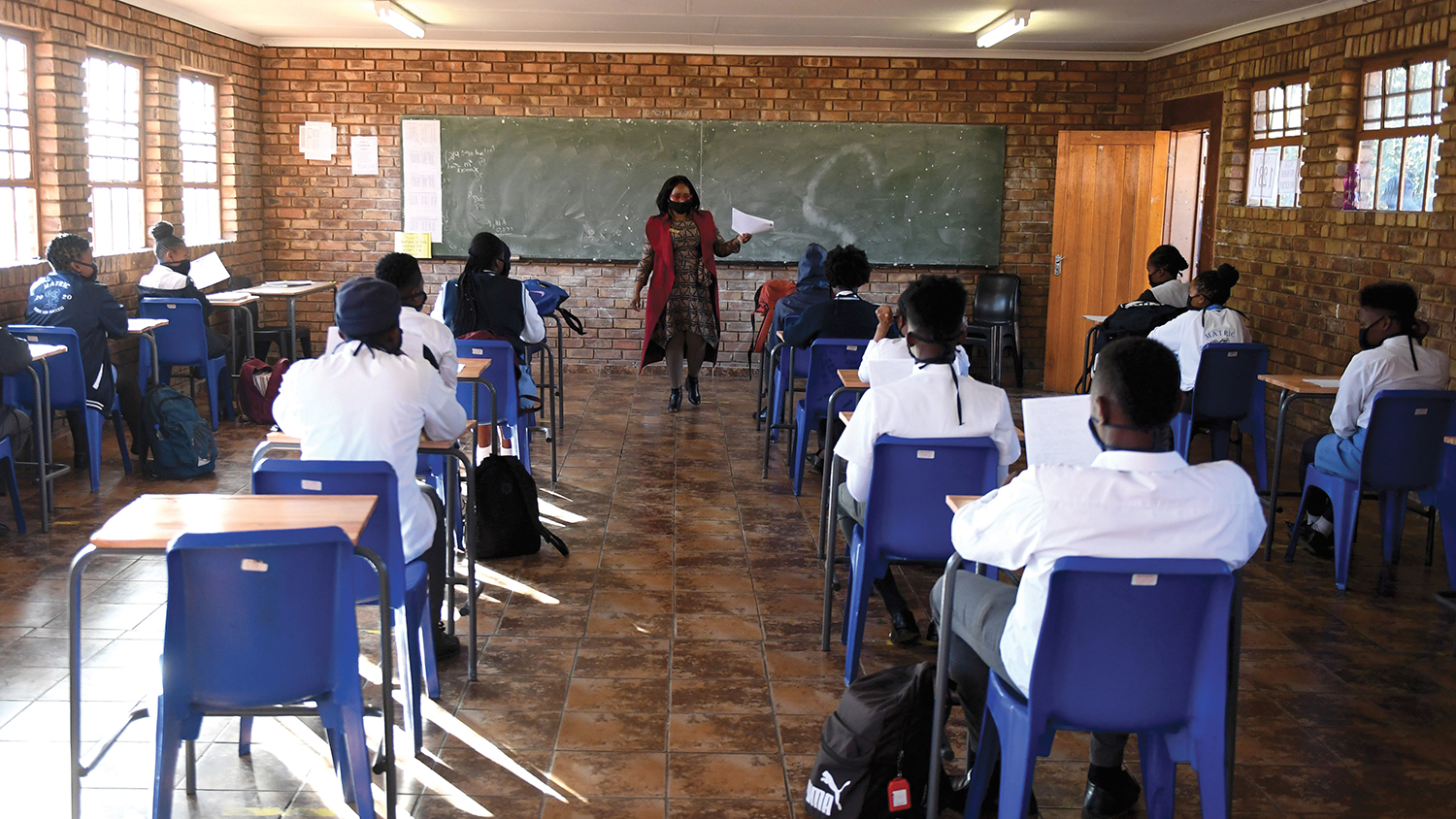
From school closures to devastated industries and millions of jobs lost – the social and economic costs of the pandemic are many and varied. Covid-19 is threatening to widen inequalities everywhere, undermine progress on global poverty and clean energy, and more.
The best solution is to stop this damage from happening, through the use of tests, treatments and vaccines everywhere they're needed. This will cost only a fraction of the huge economic loss the pandemic is causing every week.
To slow the spread of the virus, schools closed across the world. One year into the pandemic, almost half of the world’s students were affected by school closures. Millions of girls in some countries might not be going back at all, putting them at risk of adolescent pregnancy, child marriage and violence.

The effects Covid-19 had on education, climate and poverty in 2020.
Source: Data from the World Bank, market intelligence and the United Nations, ACT-Accelerator Plan and Investment Opportunity presentation and SDG Integration.
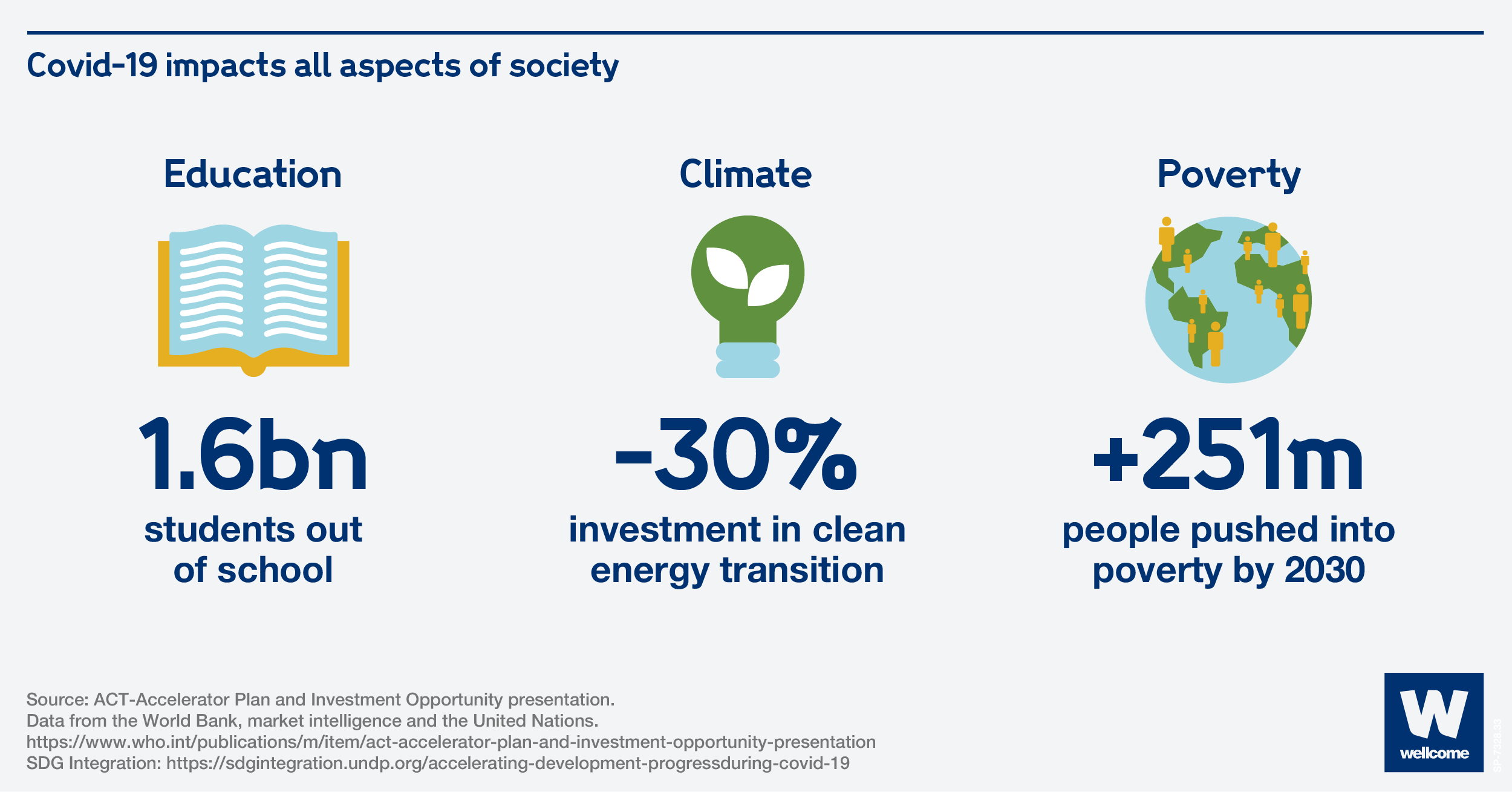
Businesses closed too, leading to the equivalent of 255 million full-time jobs lost, in terms of working hours, in 2020. Among the worst hit are workers in the informal economy, young people and women. Any economic recovery will likely be uneven, leading to greater inequality in the coming years.
Women have been harder hit economically by the pandemic because they are a large proportion of the workers in sectors severely affected by Covid-19, including accommodation and food services, and in front-line occupations, such as the health and social care sectors.
With the closures of schools, they have also had to take on more care responsibilities at home. Whether through job losses or school closures, the pandemic threatens to undo decades of progress on gender equality.
Covid-19 has been slowing down progress on clean energy too, at least temporarily, by curbing investments and delaying the expansion of clean energy technologies.
There was some positive climate news: global energy-related CO2 emissions fell by 5.8% in 2020, the largest ever decline in global CO2 emissions in history. But that was only a short-term effect of lockdowns, not a sustained change, as the demand for coal, oil and gas returned to almost pre-pandemic levels in 2021.
Since March 2020, governments have spent staggering amounts on fiscal support – and deficits are the highest they’ve been since World War II.

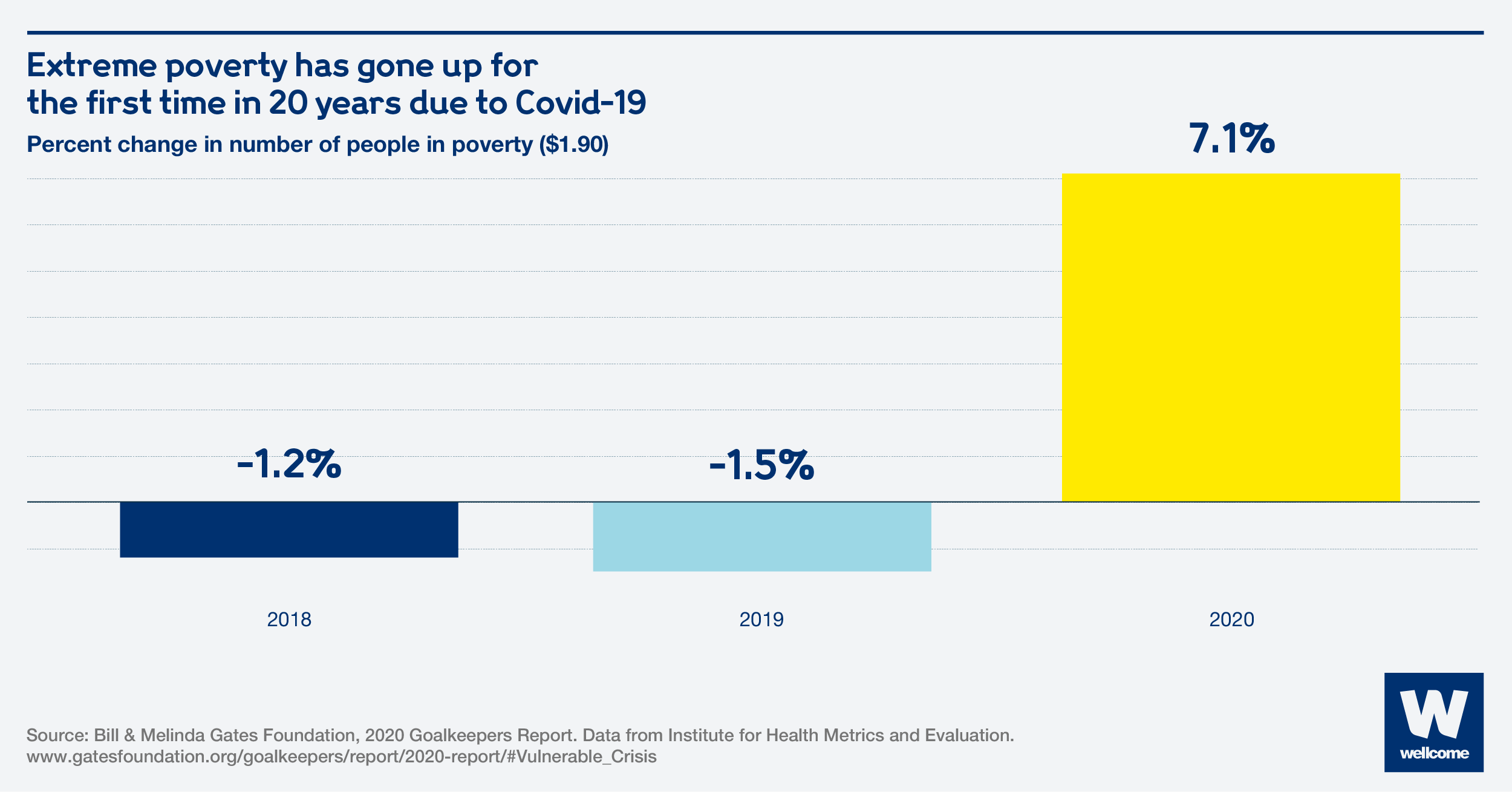
The effects are felt unevenly across societies.
The Wellcome Global Monitor 2020: Covid-19 report, the largest study of its kind, found that the pandemic has had a disproportionate impact on low-income countries and people with low incomes across all countries. Almost half (45%) of workers in low and lower-middle-income countries lost a job or business due to the pandemic, compared to just 10% of people in high-income countries.
While no economy is left untouched, lower- and middle-income countries are worst affected because they have weak defences against economic shocks and tend to depend more on a few sectors, such as commodities and tourism.
Millions of people have already fallen below the poverty line. In just a few months of Covid-19, extreme poverty went up for the first time in 20 years.
Wealthy countries had the means to intervene early to protect people and businesses. They pumped $9.8 trillion into their economies – the biggest chunk of the total of $11.7 trillion spent globally in 2020 – to cope with the fallout from the pandemic. But low- and middle-income countries have not been able to do the same.
A report by Oxfam reviewed the government measures to support people through the pandemic in 126 low- and middle-income countries, including numerous kinds of benefits for those affected, and found that 97% of the support provided was inadequate to meet basic needs.

Wealthy countries spent on average $695 per person, while low- and middle-income countries spent between $4 and $28 per person for cash support during 2020.
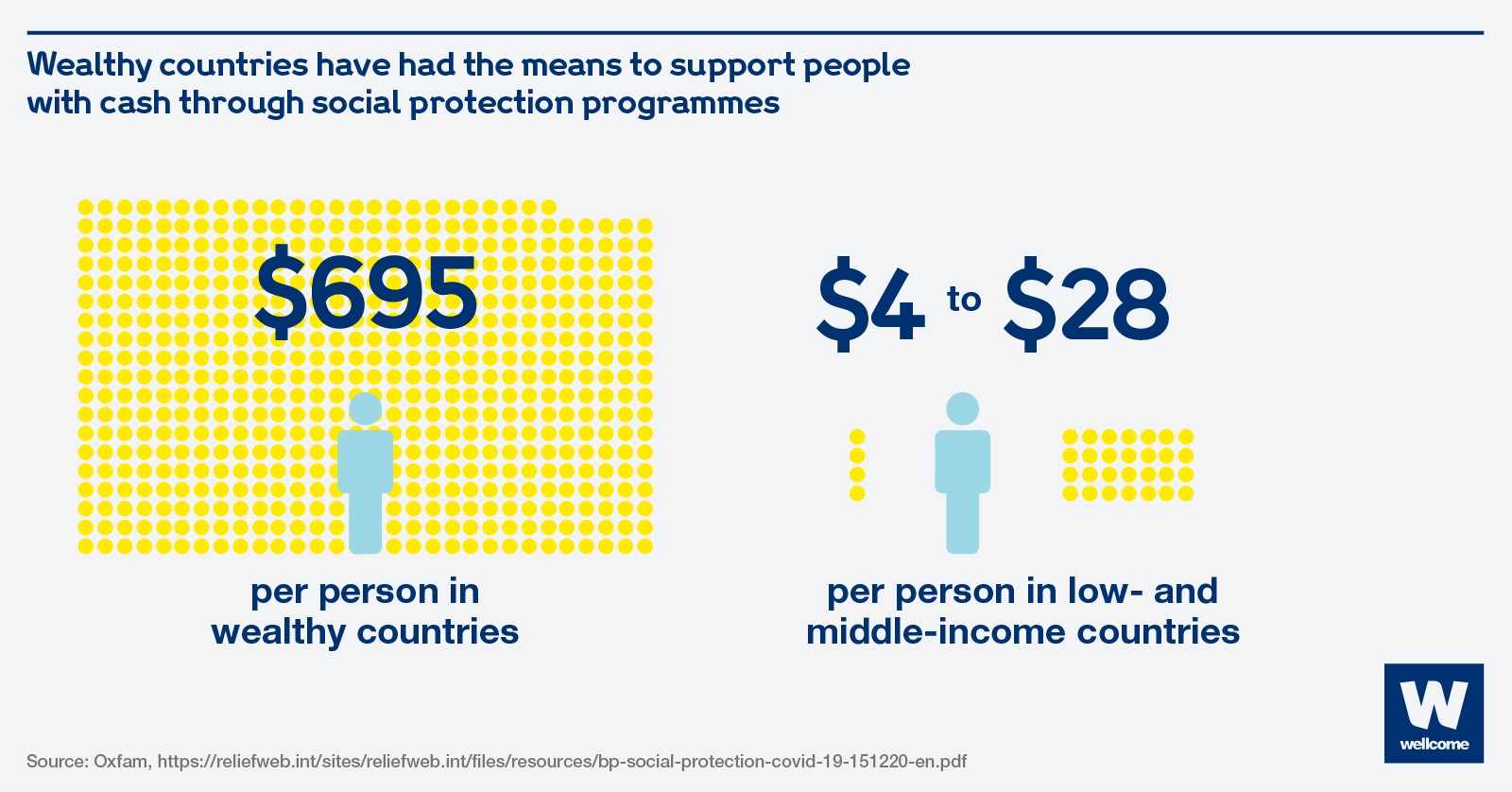
The Access to Covid-19 Tools (ACT) Accelerator is a global collaboration of health organisations, scientists, businesses, civil society, governments and philanthropies, including Wellcome, working together to get lifesaving tests, treatments and vaccines from the laboratory to the front line.
Without tangible solutions to stop the virus from spreading and treat those who fall ill, the pandemic will continue to steal lives and livelihoods.
The greatest investment we could make now is in the research, development and fair distribution of tests, vaccines and treatments.
The good news is that the investment needed is small compared to what the world will keep losing if we don’t act. For every month’s delay in expanding access to Covid-19 vaccines, tests and treatments equitably around the world, the world is losing 120,000 lives and $460 billion in economic output, the International Monetary Fund estimates.
The investment needed relies on countries and international organisations showing leadership, pooling resources together and acknowledging that this crisis can only be overcome if we act together.
We’re funding research to better understand what causes and drives infectious diseases to escalate and the solutions to control their impact.
There are currently no open funding opportunities for Infectious Disease. Learn more about the funding we provide.
This article was first published in September 2020.
Did you find this content useful? Let us know your feedback at webmaster@wellcome.org.
Covid-19 is causing wider consequences for societies, national economies and global relations. Three experts share insights on how we can better respond to the pandemic.

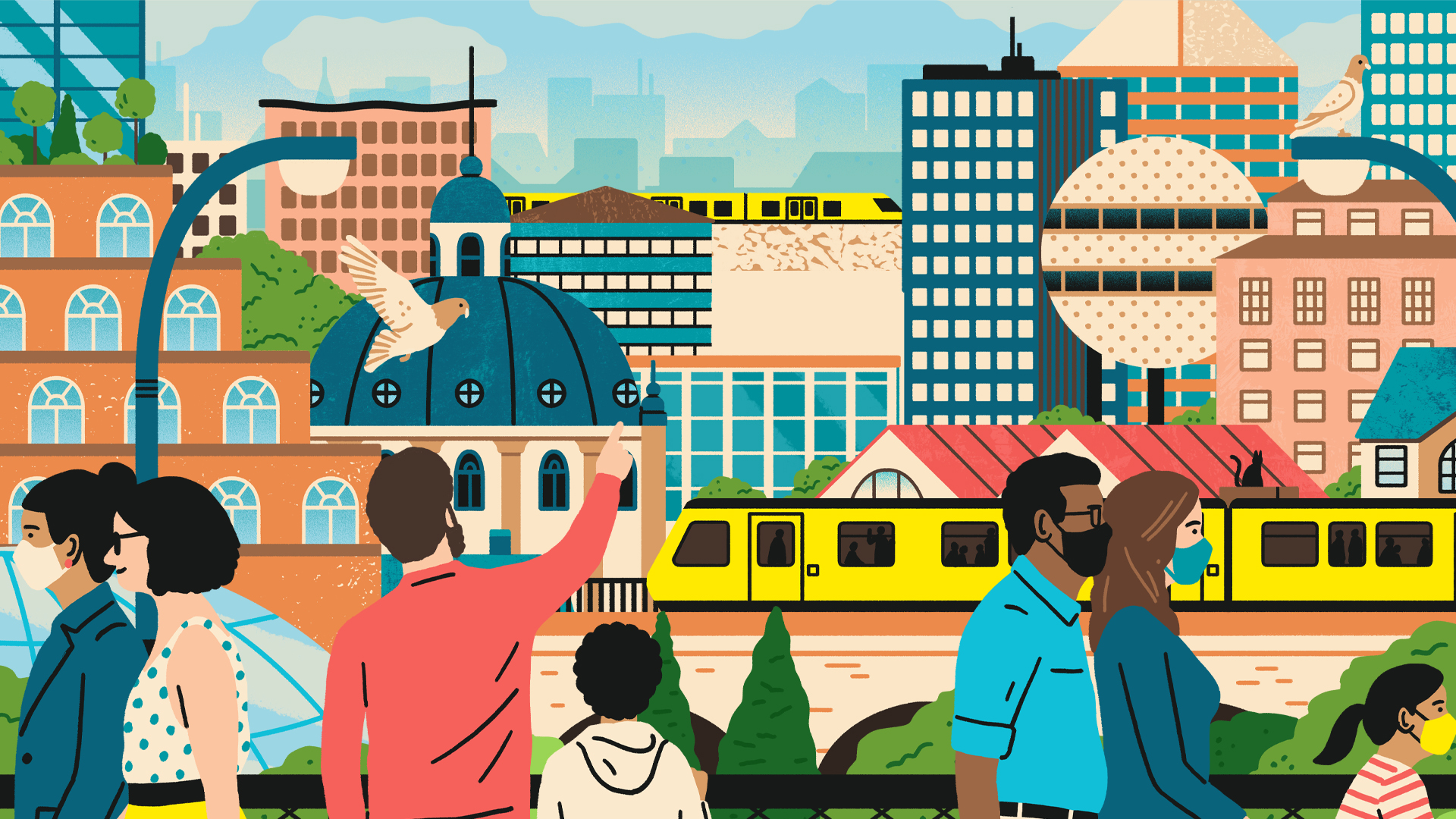
The Covid-19 pandemic is a social and an economic crisis just as much as it is a health one – its repercussions, severe and far-reaching, are being felt across the world.